14-1. Clearly the stars located at
the right ascension line of the face of the nakshatra Full Moon were in parallel with the
glyphs. And when the Full Moon reached the Creation of our
present world - corresponding to day
161 →
Φ
in the Golden Age of the Bull - then
it was known the Sun had reached the Mesopotamian pair in the
Tail of the Goat:
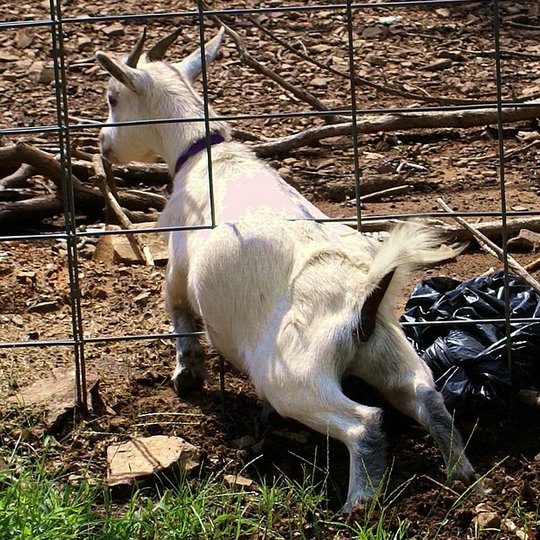
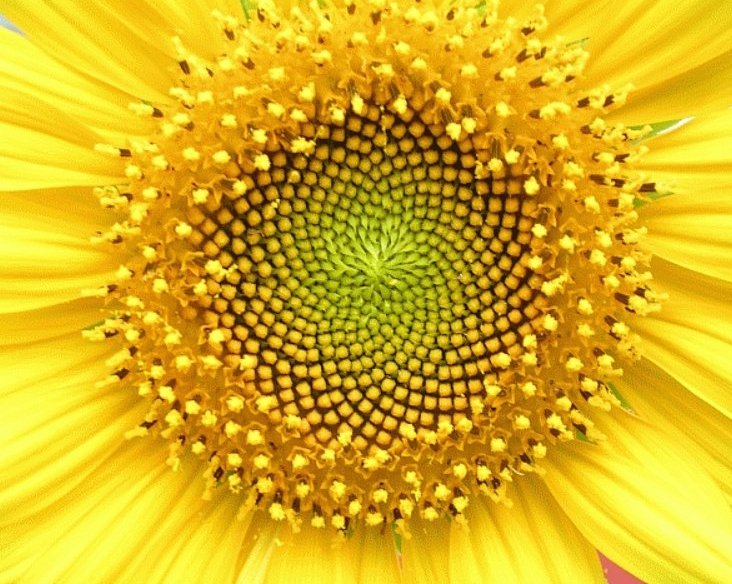
 |
 |
 |
 |
|
Eb4-22 (129, 455) |
Eb4-23 |
Eb4-24
(→ 4 * 42 = 168) |
Eb4-25 |
|
manu rere atu |
manu rere |
manu ariga nuku |
henua - kiore |
|
Rere. To jump; to run; to fly.
Rere-taúra, to carry a child astride on
one's shoulder: ku rere-taúra-á i te poki e
te matu'a ki te gao, the mother carries her
child astride her neck. Vanaga. 1. To fly, to
run, to leap, to scale, to be carried away by
the wind; ika rere, flying fish; rere
aruga, to rebound; hetuu rere,
meteor, flying star. Hakarere, to leap. P
Pau.: rere, to soar, to fly; fakarere,
to precede. Mgv., Ta.: rere, to fly, to
leap. 2. To come, to reach to. Mq.: éé mai,
to come. 3. To swerve, to deviate. (4.
Hakarere, to cease, desist, postpone, quit,
vacation; tae hakarere, perseverance.
Mq.: rere, to disappear. 5. Hakarere,
to save, preserve, put, place, reserve, burden,
destine. 6. Hakarere, to abandon,
forsake, give up, depose, expose, leave, omit,
abjure, repudiate; hakarere ki te hau,
uncover the head; hakarere ki te vie, to
divorce, hakarere ki raro, to put down,
tooa te kiko e ivi i hakarere, to strip
off the flesh. Mq.: éé, to run away, to
escape. 7. Hakarere? Ikapotu hakarere,
to abut, to adjoin; e tahi hakarere,
synonym.) Churchill. Vi.: Lele, the end
of a branch farthest from the body of a tree;
leletha, to bend a branch in order to gather
the fruit on it. Churchill 2. In the present
phase of Polynesian lele so much means to
fly that the plainest way of particularizing
birds is to describe them as the flying animals,
manulele. But to manifest that flight, an
exercise or balancing of wings, was by no means
the primordial sense, for how could that give
rise to a description of water in the
water-courses? It will be no end to mass the
several significations which lele
exhibits ... Flight of birds ... Wind drive ...
Meteors ... To leap ... To run ... Flow of water
... To swim ... To sail ... These several
activities are exercised in earth, air, and
water. The common factor is the swift motion.
The means of motion cut no figure. It is an
invisible means in the driving of the wind, the
flash of the meteor silent athwart the sky on
its lethal errand, the slip and slide of the
stream in its deep course, the set of the sea,
the gliding of the canoe upon its surface.
Churchill 2. Atu. Particle
of meaning opposite to that of mai; it
refers to the second or third person, expressing
movement away: ka-avai-atu, give it to
him: he-oho-atu au, I am going there,
after you; i-oho-atu-era, when I had gone
there. Vanaga. 1. a. Directive, of motion from
the speaker. b. Somewhat expressive of the
comparative degree. 2. Pupil; hakaatu,
proof; hare hakaatuga, schoolhouse,
class. 3. (hakaatu), to presage. 4. (hakaatu),
mark, object. Churchill. |
|
VISIBLE CLOSE TO
THE FULL MOON: |
|
Creation of our present world
UKDAH (Knot) =
ι
Hydrae (145.4),
κ
Hydrae (145.5),
SUBRA =
ο
Leonis
(145.8)
ALPHEKKA MERIDIANA
*104.0 = *145.4 - *41.4 |
5
Imix 9 Kumk'u
Rishu A.-13 (Head of
the Lion)
ψ Leonis (146.4),
RAS ELASET AUSTRALIS = ε Leonis
(146.6)
*105.0 = *146.4 - *41.4 |
VATHORZ PRIOR = υ Carinae
(147.9) |
υ¹
Hydrae (148.4),
RAS ELASET BOREALIS (Northern Head of the Lion)
=
μ
Leonis
(148.7)
*107.0 = *148.4 - *41.4 |
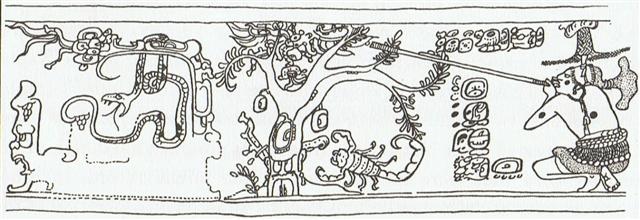 |
|
Aug 13 (225 =
141 + 84) |
14 (45 + 181) |
15 (227 → 22
/ 7 → π) |
16 |
|
"July 3 (184
= 225 - 41) |
4 |
5 |
6 (*107) |
|
JUNE 10 (161
= 225 - 64) |
11 |
12 |
13 (*84) |
|
... Midsummer is the flowering season of the oak,
which is the tree of endurance and triumph, and like
the ash is said to 'court the lightning flash'. Its
roots are believed to extend as deep underground as
its branches rise in the air - Virgil mentions this
- which makes it emblematic of a god whose law runs
both in Heaven and in the Underworld ... The month,
which takes its name from Juppiter the oak-god,
begins on June 10th and ends of July 7th. Midway
comes St. John's Day, June 24th, the day on which
the oak-king was sacrificially burned alive. The
Celtic year was divided into two halves with the
second half beginning in July, apparently after a
seven-day wake, or funeral feast, in the oak-king's
honour ...
.jpg) |
|
THE SUN: |
|
Mahar sha hi-na
Shahū-26 (Western One in the Tail of the Goat)
NASHIRA
(Fortunate One) =
γ Capricorni
(328.0),
ν
Oct. (328.3),
AZELFAFAGE (Tail of the Hen) =
π¹
Cygni,
κ
Capricorni (328.7) |
Arkat sha hi-na
Shahū-27 (Eastern One in the Tail of the Goat)
ENIF (The Nose) =
ε
Pegasi, ERAKIS =
μ
Cephei
(329.2),
46 CAPRICORNI, JIH (the Sun) =
κ
Pegasi
(329.3),
ι
Piscis Austrini (329.4),
λ
Capricorni
(329.6),
ν
Cephei (329.7),
DENEB ALGIEDI
=
δ
Capricorni
(329.8)
*288.0 = *329.4 - *41.4 |
θ
Piscis Austrini (330.1),
λ
Oct.
(330.7) |
KUH (Weeping)
=
μ
Capricorni (331.4),
γ
Gruis (331.5)
*290.0 = *331.4 - *41.4 |
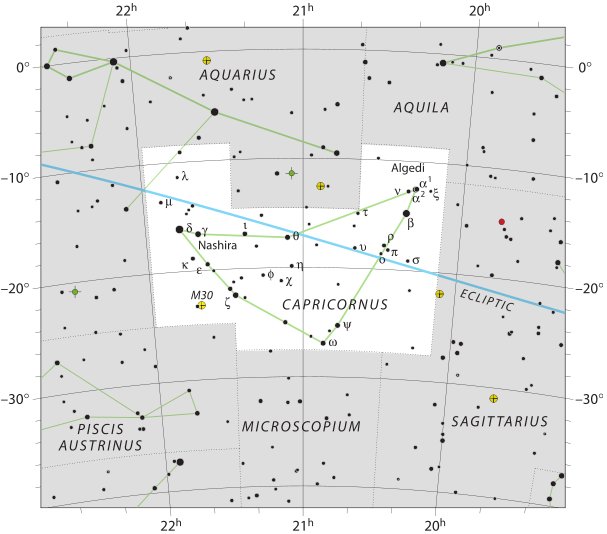
Could the First 3-stone (tau-toru) Place
refer to the string (tui) of stars
('stones') between
γ and λ (→ γ inverted)?
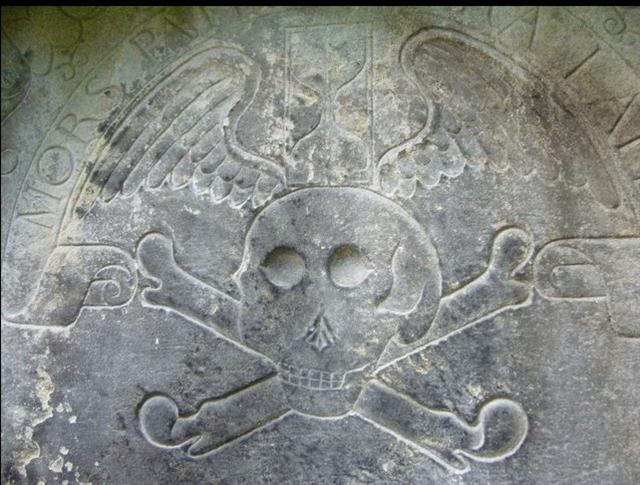 |
 |
 |
|
Eb4-26 (459) |
Eb4-27 → 7 *
42 = 294 |
|
te maro - te vai - te
tagata |
te henua te kiore |
|
VISIBLE CLOSE TO
THE FULL MOON: |
|
TSEEN KE (Heaven's Record) =
φ
Velorum
(149.9) |
ν Leonis (150.1), π Leonis (150.6) |
|
Aug 17 (229) |
18 (80 + 150 = 230) |
|
"July 7 (188) |
8 |
|
JUNE 14 (165) |
15 |
|
THE SUN: |
|
No star listed (332) |
η Piscis Austrini (333.4)
*292.0 = *333.4 - *41.4 |
In the month of JUNE the Southern Fish (Piscis Austrini,
Piscis Notius) would swallow the last of the waters (te
vai) from the Urn of Aquarius. Perhaps this
was the main reason for naming June the Maro
month.
Maro.
A sort of small banner or pennant of bird feathers tied
to a stick. Maroa: 1. To stand up, to stand. 2.
Fathom (measure). See kumi. Vanaga.
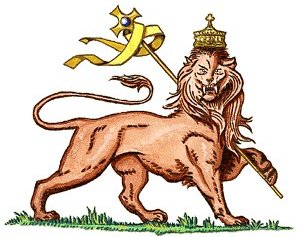
Maro: 1. June. 2. Dish-cloth T P Mgv.: maro,
a small girdle or breech clout. Ta.: maro,
girdle. Maroa: 1. A fathom; maroa hahaga,
to measure. Mq.: maó, a fathom. 2. Upright, stand
up, get up, stop, halt. Mq.: maó, to get up, to
stand up. Churchill. Pau.: Maro, hard, rough,
stubborn. Mgv.: maro, hard, obdurate, tough. Ta.:
mârô, obstinate, headstrong. Sa.: mālō,
strong. Ma.: maro,
hard, stubborn. Churchill.
Ta.: Maro,
dry, desiccated. Mq.: mao,
thirst, desiccated. Fu.: malo,
dry. Ha.: malo,
maloo, id.
Churchill. Mgv.:
Maroro, the
flying fish. (Ta.: marara,
id.) Mq.: maoo,
id. Sa.: malolo,
id. Ma.: maroro,
id. Churchill.
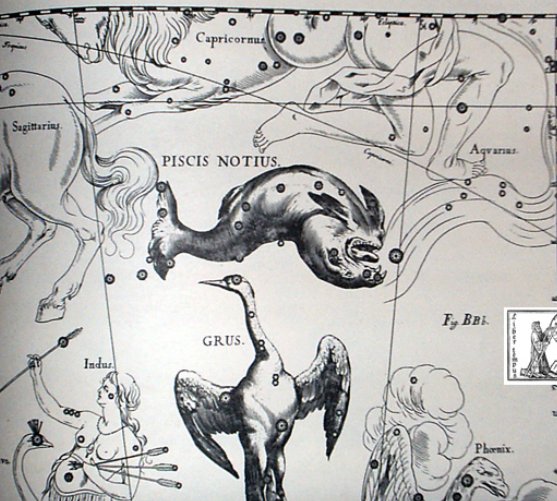
Counting 6 nights ahead from the Head of the Lion (*146
→ 2 / 5 * 365) will
bring
us to the Separation of Heaven and Earth (<), viz. to the
Little King
(Regulus, *152).
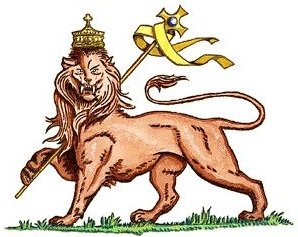
Possibly this was intended to
be similar to how
Venus as Morning Star
arrived after 8 dark nights of invisibility:

In the illustration above the sign > formed by the arms
of her Evening Star (tanist)
appearance means we should read time moving from right
to left, from the stars in the night to the daylight of
the Sun, from the trefoil sky garment past the cloth of
red dawn (tapa
mea) to the nude goddess.
... The principal word for 'fish' in
most Dravidian languages is min, which has an
ancient homophone meaning 'star', both probably
derivatives of the root min 'to glitter' ... Fish
are actually unable to close their eyes, and the fact
that 'when the fish sleeps it does not close its eyes'
was noticed by ancient Indians. The dot-in-a-circle
similar to that occuring among the trefoils of the
Harappan priest-king's robe is identical with the eye of
the many small hare- and fish-shaped amulets discovered
on the lower levels of Harappa ... (Asko Parpola, The
Sky Garment.)
 |
 |
 |
 |
|
Eb4-28
→ 2 * 2-14 |
Eb4-29 |
Eb4-30 |
Eb4-31
(326 + 138 = 464) |
|
ku hakapau hia |
te henua |
te henua |
kiore - henua |
|
Pau.
1. To run out (food, water): ekó pau
te kai, te vai, is said when there is an
abundance of food or water, and there is no
fear of running out. Puna pau, a
small natural well near the quarry where the
'hats' (pukao) were made; it was so
called because only a little water could be
drawn from it every day and it ran dry very
soon. 2. Va'e pau, clubfoot.
Paupau: Curved. Vanaga. 1. Hakapau,
to pierce (cf. takapau, to thrust
into). Pau.: pau, a cut, a wound,
bruised, black and blue. 2. Resin. Mq.:
epau, resin. Ta.: tepau, gum,
pitch, resin. (Paupau) Hakapaupau,
grimace, ironry, to grin. 3. Paura
(powder), gunpowder. 4. Pau.: paupau,
breathless. Ta.: paupau, id. 5. Ta.:
pau, consumed, expended. Sa.: pau,
to come to an end. Ma.: pau,
finished. 6. Ta.: pau, to wet one
another. Mq.: pau, to moisten.
Churchill. Paua
or pāua
is the Māori name given to three
species of large edible sea snails, marine
gastropod molluscs which belong to the
family Haliotidae (genus Haliotis),
known in the USA as abalone, and in the UK
as ormer shells ... Wikipedia
Probably the creator of the E text here stated that
here 'Earth' would separate into a pair (above and
below) - because now (i.e. 8 days after the Head of
the Lion) the Full Moon should be at the right
ascension line of the Little King:
  |
|
VISIBLE CLOSE TO
THE FULL MOON: |
|
υ² Hydrae (151.8) |
Al Jabhah-8 (Forehead)
/
Maghā-10 (Bountiful)
/
Sharru-14 (King)
10h (152.2)
AL JABHAH =
η
Leonis (152.4),
REGULUS
(Little KIng)
=
α
Leonis
(152.7)
*111.0 = *152.4 - *41.4 |
λ Hydrae (153.2) |
ADHAFERA
= ζ Leonis,
TANIA BOREALIS (Northern Gazelle) = λ Ursae
Majoris,
SIMIRAM = ω Carinae
(154.7) |
|
Aug 20 (80 +
151 = 231) |
21 |
22 (233 =
80 + 153) |
23 (235 =
212 + 23) |
|
"July 9
(*110) |
10 |
11 |
12 (193, *113) |
|
JUNE 16 |
17 (168)
→
42 * 4 |
18 |
19 |
|
March |
21 |
80 |
0 |
|
31 |
90 |
10 |
|
April |
30 |
120 |
40 |
|
May |
31 |
151 |
71 |
|
June |
21 |
172 |
92 |
|
30 |
181 |
101 |
|
July |
31 |
212 |
132 |
|
August |
14 |
226 |
146 |
|
21 |
225 + 8 |
145 + 8 |
|
31 |
243 |
163 |
|
September |
22 |
265 |
185 |
|
30 |
273 |
193 |
|
October |
31 |
304 |
224 |
|
November |
30 |
334 |
254 |
|
December |
21 |
355 |
275 |
|
31 |
365 |
285 |
|
January |
31 |
31 |
316 |
|
February |
28 |
59 |
344 |
|
March |
21 |
80 |
365 |
|
31 |
90 |
375 |
|
April |
30 |
120 |
405 |
|
May |
31 |
151 |
436 |
|
|
THE SUN: |
|
Rooftop-12 (Swallow)
22h (334.8)
KAE UH (Roof) = ο Aquarii
(334.0),
AL KURHAH (White Spot) = ξ Cephei (334.4),
SADALMELIK
(Lucky King) = α Aquarii,
AL DHANAB (The Tail) = λ Gruis
(334.6), ι Aquarii, ν Pegasi (334.7)
*293.0 = *334.4 - *41.4 |
ι
Pegasi (335.0),
ALNAIR (The Bright One) =
α
Gruis
(335.1),
μ
Piscis Austrini,
υ
Piscis Austrini (335.3),
WOO (Pestle) =
π
Pegasi
(335.7),
BAHAM =
θ
Pegasi (Good Luck of the Two Beasts),
τ
Piscis Austrini (335.8) |
ζ
Cephei (336.2),
λ
Cephei (336.3), -/270 Lac.
(336.7), λ Piscis Austrini (336.8) |
μ
Gruis (337.0),
ε
Cephei (337.2), 1/325 Lac. (337.3),
ANCHA (Hip) =
θ
Aquarii
(337.4),
ψ
Oct.
(337.5), α Tucanae (337.9)
*296.0 = *337.4 - *41.4 |
|
... Horapollo, the grammarian of Alexandria,
about A.D. 400, tells us that the crane was
the symbol of a star-observer in Egypt ...
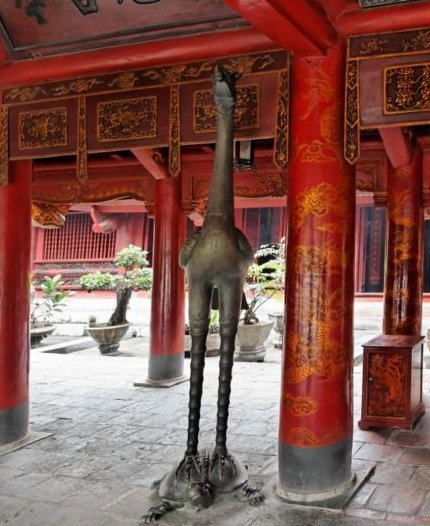 |
|
... It must be admitted, however, that the
task of raising the sky was not always a
long and arduous one. In the New Hebrides of
Melanesia the sky was formerly so low
overhead that a woman who was pounding roots
in a mortar happened to strike the sky with
her pestle. Greatly annoyed at the
interruption she looked up and cried
angrily, 'Go on up higher!' Whereat the sky
meekly obeyed her. What actually happened
probably was that the woman struck the low
house roof with her pestle and cried angrily
to her husband, 'If you don't raise that
roof higher, I won't cook you another meal!'
thus giving a strong impuls to the
development of the science of architecture
... |
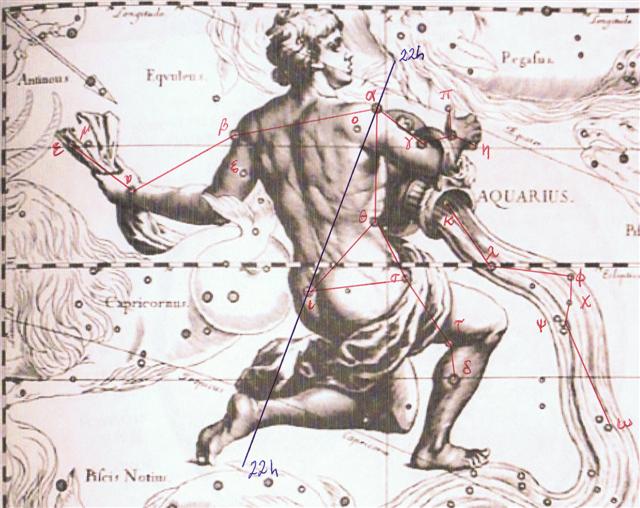 |
The flow of right ascension days - as I have constructed
them - is not completely congruent with the flow of the
Gregorian calendar days. *154 + *80
= 234 → 212 + 22 → August
23 (235) - 1. The circuit of the Earth around the Sun is
not a perfect circle.
For the Sun calendar dates
we should presumably use those which can be extrapolated down to
the time of the Golden Bull.
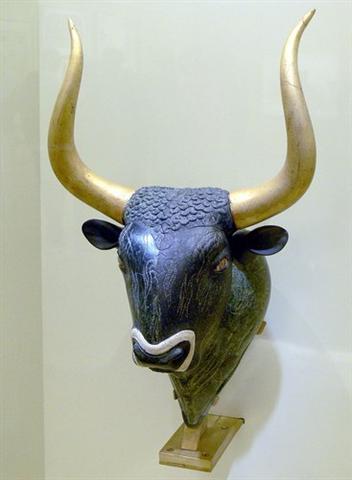
 |
 |
 |
 |
 |
 |
|
Eb4-32 (465) |
Eb4-33 |
Eb4-34 |
Eb4-35 |
Eb4-36 |
Eb4-37 (12 * 12) |
|
manu hiri ki te ariki |
e ariki |
manu rere |
tapamea |
ka hokohuki - ma tere o te kahi |
te matakao - e ua |
|
Hiri 1. To braid, plait,
tress (hair, threads). 2. To rise in
coils (of smoke). 3. To hover (of
birds). Vanaga. 1. To elevate, to
mount. Hiriga, to elevate;
elevation, mounted, ascension,
assumption, declivity; hiriga
mouga, hillside. Hirihiri,
a swing, seesaw. P. Pau.: iri,
to be put up in a place, to lodge.
Mgv.: iri, placed in a higher
position than the observer, as a box
on a high shelf. Ta.: iri, to
lodge or stick up in a place. The
germ signification is 'above,
higher'. In Samoa it is used most
commonly in a tropical sense, but
the primal sense is sufficiently
retained in the signification to
lodge, to stick in, to show general
concord with Rapanui and particular
harmony with the other languages of
Southeast Polynesia. 2. To make a
bag; taura hiri, to make a
cord; rauoho hiri, plaited
hair; hirihiri, frizzed;
rauoho hirihiri, lock of hair. P
Mgv.: hiri, wo weave, to
plait; akahiri, to make a
mat. Mq.: hii, large plait of
coconut fiber. Ta.: firi, to
plait, to braid. When we interpret
in the sense of local conditions
Père Roussel's definition 'to make a
bag' the concord is perfect, for
bags are woven. The germ sense is
plainly the act of twining in and
out, over and under, which, with
specific differences due to manner
and material, may result in plaiting
or weaving; see hiro. 3. To go, to
walk, to voyage, to arrive, to
appear; hiri tê reka, to go
without noise; hiri koroiti,
to go softly; hiri tahaga no mai,
to go without a halt. Hiriga,
voyage, journey; hiriga hakapa,
to go by twos; hiriga hipa,
to go obliquely; hiriga kokekoke,
to go by sudden steps; hiriga
okorua, to go by twos; hiriga
tahataha to go across; hiriga
tekiteki, to go on hopping;
hiriga tê mataku, to go on
fearlessly; hiriga totoro, to
go on all fours; hiriga varikapau;
to go in a ring; hiriga veveveve,
to go boldly. Churchill. Pau.:
Hirinaki. 1. To incline, to
slope. Ta.: hirinai, to rest
upon. Ma.: irinaki, to rest
upon. 2. To be apprehensive. Ta.:
hirinai, to apprehend.
Churchill. Mgv.: Aka-hiria,
to enquire after. Sa.: sili,
to ask, to demand. Hirihiri,
to fish for turtle. Mq.: fiifiii,
a small net for taking turtle.
Churchill.
Matakao. Oar,
paddle; clitoris. Churchill. |
|
VISIBLE CLOSE TO
THE FULL MOON: |
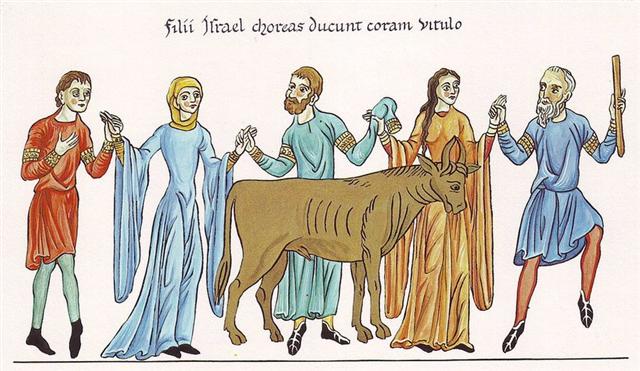 |
|
ALGIEBA (The Mane) = γ
Leonis,
q Carinae (155.5) |
TANIA AUSTRALIS (Southern Gazelle) =
μ
Ursae Majoris (156.0), GHOST OF
JUPITER = NGC3242 Hydrae
(156.8) |
Extended Net-26b (Ox)
μ
Hydrae
(157.1) |
Maru-sha-arkat-Sharru-15 (4th Son
behind the King)
SHIR (Possessing Luminous Rays) =
ρ
Leonis
(158.9) |
p Carinae (159.3) |
φ Hydrae (160.3) |
|
Aug 24 (236) |
25 |
26 |
27 |
28 |
29 |
 |
 |
|
Eb4-38 |
Eb4-39 |
|
erua age rae |
|
No star listed
(161 →
φ) |
VATHORZ POSTERIOR = θ Carinae
(162.1),
PEREGRINI = μ Velorum,
η Carinae
(162.6) |
|
Aug 30 |
31 |
 |
 |
 |
 |
 |
 |
|
Eb4-40 |
Eb4-41 |
Eb4-42 |
Eb5-1 (326 + 150) |
Eb5-2 (477) |
Eb5-3 (152) |
|
manu i ruga o te take |
manu rere |
E manu |
i te tino |
ku tere mai |
henua - kiore |
|
Take.
The Marquesans are the
only people who own to a distinctive
national name, and retain a
tradition of the road they travelled
from their original habitat, until
they arrived at the Marquesan
Islands. They call themselves te
Take, 'the Take nation'.
Fornander. Take, Tuvaluan for
the Black Noddy (Anous Minutes).
The specific epithet taketake
is Māori for long established,
ancient, or original. In the Rapa
Nui mythology, the deity
Make-make was the chief god of
the birdman cult, the other three
gods associated with it being
Hawa-tuu-take-take (the Chief of
the eggs) his wife Vie Hoa
and Vie Kanatea. Wikipedia. |
|
ν Hydrae (163.1) |
No star listed (164)
ALTAIR (α
Aquilae) |
Wings-27 (Snake)
η
Octans (165.4),
ALKES (Shallow Basin) =
α
Crateris
(165.6)
*124.0 = *165.4 - *41.4 |
ANA-TIPU-4
(Upper-side-pillar - where the
guards stood)
MERAK (Loin, not Lion) =
β
Ursae Majoris
(166.2),
DUBHE (Bear) =
α
Ursae Majoris
(166.7) |
11h (167.4)
χ
Leonis,
χ¹
Hydrae (167.1),
χ²
Hydrae (167.3)
*167.4 - *41.4 = *126.0 |
AL SHARAS (The Ribs) = β Crateris
(168.6) |
|
JUNE 28 |
29
(244 - 64 = 180) |
SIRIUS |
JULY 1 |
2 |
3
(184) |
Because then it will become reasonable to assume that the creator of
the glyph text associated the empty dish at
heliacal Alkes with JUNE 30.
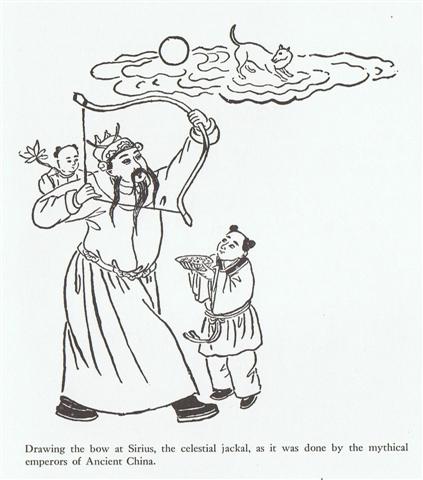
|






.jpg)


















